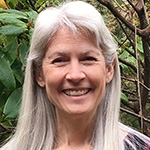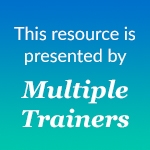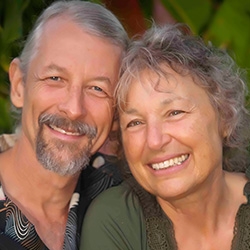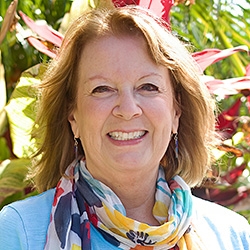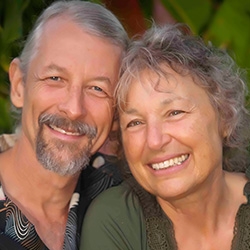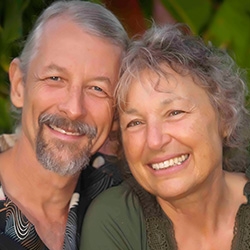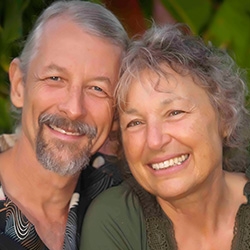
Search Results: self talk
-
-
Inbal offers parents and anyone with children in their life a lucid discussion of the important role self-empathy plays in creating healthy, supportive relationships.
-
Does NVC seem like a good idea, but not practical? Do you feel frustrated when you find yourself in the same jackal scenario repeatedly? Let beloved trainer Kathleen Macferran guide you toward integrating NVC into all aspects of your life.
-
Blame is the game that protects me from the understanding that the cause of all my emotional distress, fear, shame and guilt comes from the part of me I call "the inner voice." As long as I keep the big bony finger of blame pointed in your direction, I can remain unaware of the fact that it is what I am telling myself about your behavior that is stimulating my painful reactions.
-
In this inspiring audio, Kelly Bryson, veteran CNVC Certified Trainer and author of many NVC books and articles, explores the importance of setting a clear intention and then clarifies the difference between pain and suffering.
-
Ask the Trainer: “I would love some clarity about the NVC perspective on the cause of our feelings. It seems to me that my needs may be met or not, but the cause of my painful feelings is my story around the situation.”
-
Experience the remarkable healing power of self-empathy, guided by CNVC Certified Trainers, Mary Mackenzie and Raj Gill. In this audio course, the trainers lead participants through a demonstration, and then supplement the learning with discussion and answers to questions.
-
Watch this video with CNVC Certified Trainer Jim Manske to explore the practice of Self-Empathy through a different lens. Included is a unique four-step Self-Empathy process that culminates in a focus of gratitude.
-
In this brief video, CNVC Certified Trainer and Inner Relationship Focusing Guide and teacher, Gina Cenciose, teaches that our inner relationship is the basis for both Focusing and NVC work.
-
In this dynamic 4 session telecourse recording, Kelly Bryson provides practical skills to balance passion for self with compassion for others. You will learn to apply Nonviolent Communication to stop yourself from being intimidated, giving in or giving up, abandoning your own needs or resenting others.
-
In this inspiring video, Gina Cenciose, CNVC Certified Trainer and Inner Relationship Focusing Guide and Instructor, offers an in-depth view of the distinctions and similarities between NVC and Inner Relationship Focusing (also known as IRF and Focusing).
-
How do we live each and every day from the “living energy of needs” – with the unimpeded fullness of life’s energies flowing through us, regardless of the conflicts or life circumstances we may be experiencing? Through developing deep self-compassion. How can we experience our inner world from a place of utter and total compassion? When we practice compassionate self-care, we create an inner spaciousness that allows our life’s energies to flow. In that spaciousness both healing and inner transformation occurs. Robert’s work explores the interweaving of two co-intentions—to live life from the fullness of the “beauty of needs” and to approach every experience with deep compassion.
-
It is time to create true transparency, empathy and trust in your intimate relationships! In this inspiring telecourse recording, Kelly Bryson combines humor, music, group readings and experiential exercises to help you realize the fulfilling and intimate relationships you long for.
-
In this 10 session telecourse recording, world renowned CNVC Certified Trainer Robert Gonzales will help you discover a new level of self-acceptance that can lead to profound emotional healing and a deeper spiritual presence.
-
Listen to this short 3 session telecourse recording with CNVC Certified Trainer Christine King, and you will learn how to honor the wisdom that your anger, fear, shame and other BIG emotions have for you.
-
Trainer Tip: Accepting our true feelings, needs and values can lead us to a more compassionate life. Are you being true to yourself?
-
Join veteran Mediators and Facilitators, Jori and Jim Manske in using Nonviolent Communication and mediation skills for transforming conflict into connection between yourself and others.
-
Have you ever gotten a fishing line all tangled up? You got so frustrated you just started yanking on the different loops of line, which of course made the knots and tangles even tighter and more difficult to untangle. Wouldn’t it be great if you could notice the minute you were starting to tangle things up in a discussion with your loved one?
-
Jim and Jori Manske went from poverty to financial independence in 8 years, and they’re making the process they used available to you! Please join them in this inspiring 8-session program to transform your relationship with money, scarcity and abundance.
-
Listen to Jim and Jori Manske share how we are conditioned to disconnect from our own feelings and how we can unlearn this habit to experience more full and rich inner lives.


